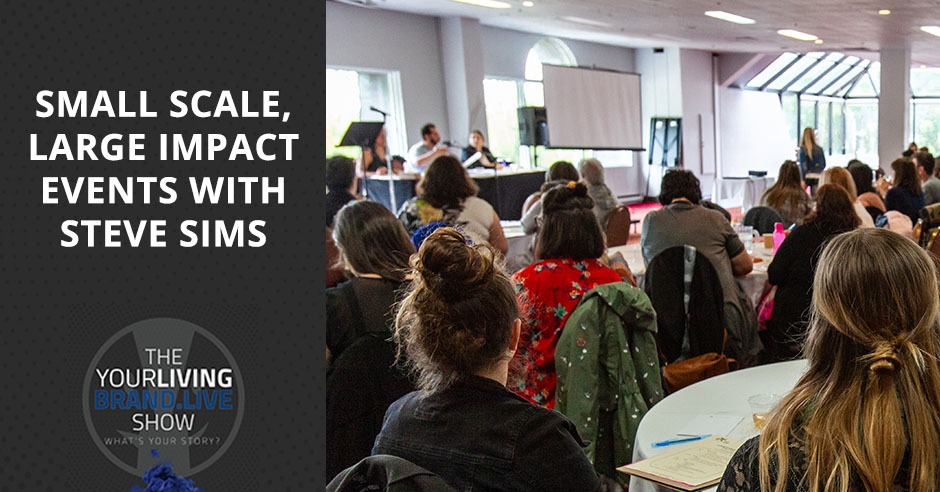
Do we need large-scale events to create a large impact? Steve Sims, the best-selling author of Bluefishing: The Art of Making Things Happen, doesn’t think so. In today’s podcast episode, you’ll have the opportunity to learn from “The Real Life Wizard of Oz” himself as he joins Ben Baker in a discussion about how you can create large impact events by going straight into the heart of the issue. Bypass the glitter and get things done via the simplest route possible. Tune in, be activated, and make things happen!
—
Listen to the podcast here:
Small Scale, Large Impact Events With Steve Sims
We have a repeat offender. In the 260 episodes that I’ve done, this is the first time I’ve brought somebody back and it’s well worth it. I’ve got Steve Sims back, the real Wizard of Oz. He was on Episode 216. We’re not going to talk about what we talked about before. If you want to find out about Steve, you got to read the previous episode. Steve, welcome to the show. Let’s talk about small scale large impact events.
Thanks for having me back. It’s a pleasure and an honor.
I love watching you. I am a voyeur at heart. You and I were talking about the crazy things that you do. People follow you and say, “Steve is doing something crazy. I got to be part of this.” Quite honestly, if I could get across the border and get back easily to Canada without a fourteen-day, quarantine, I’ll pony up the money coming to your events. We’ll deal with that when the time comes. You and I are definitely going to raise the glass together and we’re going to have a lot of fun. For people who don’t know about Steve, read Episode 216. He’s got an amazing backstory and incredible book called Bluefishing. He takes the time to create this amazing, small scale but large-impact events. I wanted to talk to you about it. What was the impetus in the first place? Why go this direction? What was the crazy thought that brought you there?
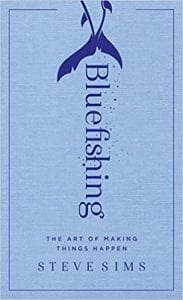
I would love to tell you that I sat down, I planned and I did this. You’ve known me long enough to know that I’ve never over-thought anything in my life. As entrepreneurs, we work based on aggravation. If something bothers us, we go and find a way to fix it. Two things bothered me in June about a couple of years ago. The first thing that bothered me is I come off of an event that was full of a bunch of speakers that were promised to deliver. I knew a few of them. Most of the others I didn’t know but they were pretty lame. The ones that were up there seemed to be off kill and telling me how wonderful they were. I ended up leaving off for this event. I remember the guy next to me was clapping like crazy. Like any good presenter, you can get people clapping but you can’t get them activated. I want to be activated. I want to walk out the back door and go, “I need to be doing that and I need to be doing it now.”
This guy was clapping like a demented sea lion. Once he calmed down, I said to him, “You enjoyed that, didn’t you?” He was like, “That was great, Steve.” I said, “What are you going to action from it?” He was like, “What?” Bear in mind the footprint hadn’t gotten cold from the speaker getting off the stage. The guy couldn’t give me one actionable step he was going to use. I went home going, “How many times do we go to events because XYZ is going to be there? Bob is going to be here. Billy is going to be here.” We go based on the speakers. We’re told what conference center it’s in, what time it starts, what time it finishes. We’ve got all of the details. I thought to myself, “That’s all the details apart from the one thing that I want. I want to know what the answer is. I want to know what the impact is. I want to know what the solution is to problems I have. None of those were being laid out on this massive itinerary.” That was bothering me one thing. I got to ask you first off, do you have kids?
I do.
Are any of them girls?
No, I don’t have any girls. Having teenagers, I probably sleep far better having boys than girls but that’s a different conversation altogether.
I had a teenage daughter. She’s grown up. Everyone out there is like, “You poor fellow.” They get to a stage in life where they hate you more than anything in the planet. You are the butt and the aim of every sly remark, smear and eye roll. This was bothering the hell out of me. I used to be tight with my daughter and now she’d been replaced by Satan himself. It was coming up to my birthday. The one thing that I’ll never tolerate is two-face. If you got something to say about me, say it to my face, otherwise shut up. I did not want my daughter in July to come up to me a month later and have to give me a birthday card going, “Love you, dad,” when all she wanted to say is, “Please fall over and rot in the ground.”
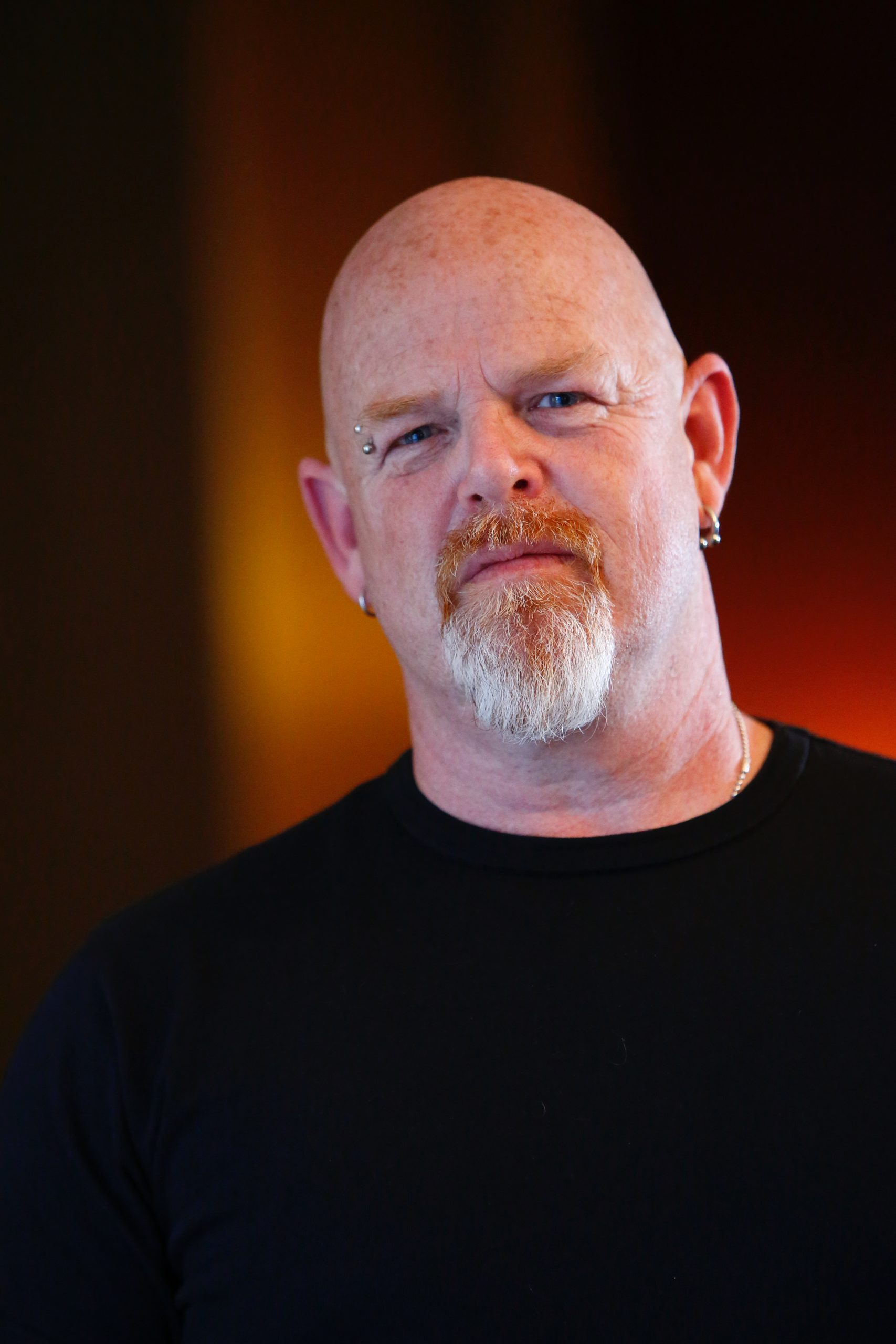
“Please pass over the credit card while you’re doing it, would you please?”
I didn’t want to put her in that position. That was the aggravated nut. That was the oyster. That was the moment of me going, “God, I don’t want her to be doing that on my birthday. I can’t be here. I can’t be in this house on my birthday. I’m aggravated with my daughter.” I’m still aggravated from this event and they both then combined. I went on Facebook and I suggest you all do this. You all think you’ve got credibility. You all think you’ve got some impact you’re creating, find out how many people are willing to commit to you. That’s real. It’s always the light. You might have four million followers but how many paychecks have you got? How many actual people pay to play? Everyone’s in until they got to pay. I thought to myself, “I’m going to test by credibility.”
I posted on Facebook. These dates in July, which was my birthday, I’m going to be somewhere in Southern California for two days. I’m going to teach you everything you need to know. I’m going to answer your problems for $2,000, pay here. I’ll put a PayPal link in there. I wish I had screenshot that bad copy. It was atrocious. A few days went by. I didn’t have the alert to my PayPal. Someone messaged me, “What information do we get?” I looked on the PayPal and I had about nine people had signed up. I was like, “That’s weird.” I found out one of my mates and you talk to your mates differently. I phoned to my mate and I went, “I saw you pay me $2,000 for these two days. What’s your problem? Are you mad? It was a test. I didn’t know anyone was going to do this. I was testing to see if I had the credibility to make people pay based on ridiculously little information. What’s your problem?”
It was meant as a little bit of sarcasm but he didn’t take it that way. He turned around. He said, “Steve, glad you asked that question. I’m having trouble.” He started telling me what his problem was. I went, “I’ve got you. I’ll be back.” I went to the next person. I said, “Ben, thank you for registering. It’s an honor. You know little information. You’ve taken a risk on me. Let me ask you though, what commonly is your problem?” I reframed the question a little bit. I went through old eight people and they started telling their friends, “He’s asking me what my problem is.” Here’s the dumb thing. Armed with the knowledge of what the problem is, aren’t I better educate to get the right instructors to be in the room? That’s what I did. I went to my Rolodex and I got a handful of people.
Getting media is one thing; what you do with it is EVERYTHING. Share on XA friend of mine had a house down in Carlsbad. I said, “We’re going to do it.” Here’s the dull thing. The guy said, “I’ve got this house but I don’t want you telling the address. I don’t want you announcing it.” I thought I’m going to get a hotel that’s local. I said, “This is the host hotel. Stay at the hotel or anywhere close to it because a week prior to the event, I’ll tell you where you’re going to be but I do not release it.” Someone turned around and they went, “This is so secretive. It’s like a speakeasy.” I was like, “You are so right, a speakeasy. You know nothing of what’s going on inside unless you’re inside, which you know that’s where all the fun’s happening.” That was it. That’s what gave birth to the speakeasy.
We launched it years ago. The first one we had twenty-something people. We did another one and we ended up getting up to 35 and then 42. We did another one and we got 60. You can’t be intimate with 60 people. We kept it up 40 max. We got a little bit better. We pick a city, we pick a host hotel and we pick the dates. When they sign up, we say, “Thank you for signing up. This is going to be the host hotel. We’ve got a group. Stay there or somewhere close to there. We’ll reveal where we’re going to be closer to the time. By the way, let me ask you. What’s your problem?” We do that and what we’ll do quite often is call them. We’ll go, “Ben, I got the details on your problem.” We’ll get a bit more of a fathom. We’ve got a few people go, “I sell insurance and I want to sell to your crowd. I want to get into this group because I think my product could be good for this group.” We turn around and go, “I don’t know the solution for you at the moment so I’m going to send you your money back immediately and we’ll stay in touch.”
Quite honestly, we don’t. We cherry pick. I used to be a doorman of a nightclub. Let’s keep it primitive. If you got a couple of guys coming up to the door and they’d already had a few beers in them, if you let them through the door, you knew what they were going to continue to do. You also knew that if there was any trouble inside, it would be those guys that kicked it off. Understanding that primitive psychology, I always used to look at the people coming through the front door. I used to think to myself, “If I can control who goes in my house, I removed 99.9% of my problems.” That’s what I do with the speakeasy. I not only heavily focused, which I don’t think a lot of events do, I heavily focus on the attendees. I already know I know good people. I focus on the attendees.
Do they complement each other? Do they challenge each other? As long as they don’t upset each other then it’s a good fit. If that therefore alternate reasons then I get rid of them. Knowing the crowd’s good, knowing the problems I have then I go and get the people. I’ve had Jim Quigg, Jay Abraham. I’ve had rock stars, athletes. I’ve had a whole bunch of people that have come in and I have people come up to me. It’s doffed because they come up and they go, “Steve.” He was like he was speaking to me because I have this problem. I’m thinking to myself, “I know. You told me months ago.”
You also told them. These people feel that they’re getting this VIP, beautiful behind the scenes, velvet rope, glass door experience. It’s all about them and that what it’s all about. I want to go back because you’ve dropped some amazing gold. I want to think about it. You and I are both speakers. We’ve both spoken around the world. How many times have you asked somebody who’s running an event? What do you want people to get out of this event? What is the thing that you want people to leave here going, “I learned this and I’m so much better?” The event planner looks at you like they’ve got deer in headlights. We don’t ask.
There are so many event planners that say, “You’re right. We need to have a hotel. We need to have ballrooms. We need to have your lights, studios and speakers in there and other things.” These people are coming here and they’re giving us their money for a reason. They have problems. They have issues. They have things that are making them tear their hair out. How are we going to solve those problems better than another event? I love the fact that when you went out and said, “What’s your problem,” you cared. You sit there. It was a small event with a large impact. You were able to go up to 40 people. I have a conversation with them at a time and dive into say, “Are these people going to get along with each other? Are they going to challenge each other? Are we going to be able to help each other?” You’re right. You were able to get the people out of the room, hopefully, that were there to sell everybody else.
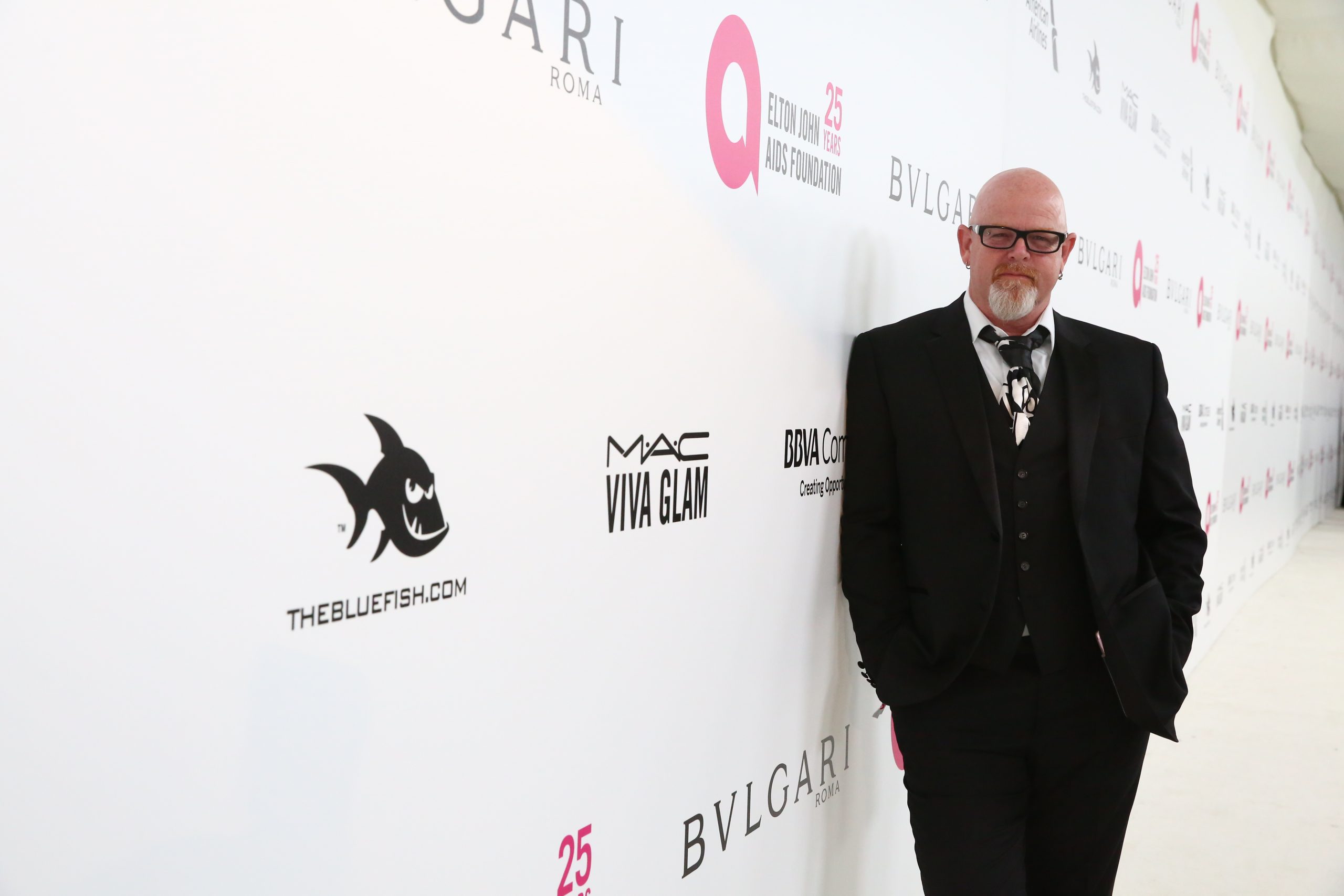
I love the genesis of this. Let’s take this and throw another monkey wrench out of this. Let’s call it COVID. We’re sitting there going in the middle of a pandemic. People are scared, don’t want to travel and don’t want to be near each other. You have all these challenges going on. How do you sit there and say, “We understand your fears, wants, desires, hopes, needs, dreams. We’re still going to take care of you?” What are the added challenges that come along with having to create a world-class event knowing all these things are going on in the background?
You have to be focused on the surroundings. For one thing, we control our environment. None of the events that we’ve ever done, which we do three a year, we never do them in hotels and conference centers. They’re always in penthouses, private houses, lofts, weird locations because that’s a great genesis for creativity. The whole point of anyone that comes to this event is they’ve given me permission to shake them up and then spit them out to be more impactful. They want to be creatively disrupted. That’s the whole point. We worked. We did too join COVID. We did one in Scottsdale and we did one last August 2020 in Nashville. They’re both under 40. At the time, this was allowed. We were supposed to do it in California. The 19th and 20th of July 2020, that was supposed to be in January 2020 but we had to postpone it because you weren’t allowed 40 people together. What we did is you got the obvious ones, face masks and hand sanitizer.
You’re going to love the simplicity of the next thing that we did. We got three stickers. We took over this Tuscan mansion in Scottsdale. As they attended and walked into the house, they got these three stickers, red, amber, green. They had to take one of the stickers that matched their comfort level. If it was red, six feet apart, face masks, don’t touch, you know the scoop. Amber, only if you know each other and the person wearing the amber has to initiate the handshake or something like that. Green, you’re fully comfortable, back slaps, hugs, anything goes. We had the traffic light symbols as our color coordination. We had a couple of people that were red and we respected that and a couple of people that were amber. Most of our crew were green. We had that little sticker system as our COVID awareness. We had that at the moment as well but we have to make sure that you do pay attention to people’s safety.
That’s brilliant in its simplicity. It truly is. First of all, everybody’s comfortable with the colors. Everybody knows the colors. Green is go, real simple as that. What it does is it lets people know that everybody in the room understands the rules. These are the rules of the house. This is the game. This is how the game is going to be played. We’re in it together. We’re all in it to win together but we need that everybody in the room feels as comfortable as they need to be. That’s challenging. You could never do that with 5,000 people in COVID. You can never do it with 500 people in COVID because of all the restrictions. The fact that you were able to sit there and say, “First of all, we’re going to a bespoke location or into somebody’s home. We can make sure that it’s properly cleaned. Before we can make sure that we can take care of all these things, we can make sure that we have masks. We can make sure that we have enough room for everybody to be comfortable but we also have this system that makes it fun.”
It takes something that’s so serious and gives it a little levity to it. That way, even people that are wearing the red stickers can have that level of confidence. I can come to one of Steve’s events. I can be part of this but I know that I’m not going to get attacked in a way that’s going to make me uncomfortable. Was that something that was an epiphany? Was that something that you came up with? Was it something that your staff came up with? Was it something that one of the guests suggested? How do you come up with little things like that? That’s what it is. It’s the little things that make the difference.
As entrepreneurs, we work based on aggravation. If something bothers us, we go and find a way to fix it. Share on XThe trouble is most people are too smart for their own good. We needed to make sure that this was COVID-friendly for the event. The face masks, that’s obvious. It the amount of the moment, the temperature thing, that’s standard. How do we display to another person how comfortable they feel? Sometimes you may feel a bit intimidated. If you’ve got a friend in funding, you’re going, “You may not want to go.” You might feel a bit intimidated by going, “Ben, I like you but I’m not sure.” We thought, “How can we make it visible without saying so quite simply?” We were talking about this over at my local curry house, pulled out of the street. What did I pull in front of the street? There is the traffic light.
Everyone knows what I stand for. You don’t even have to explain the things. “Here’s the color code, Pete. Which one works for you?” Everyone knows. It’s funny. The most impactful things in the planet are the most simple. People with brain cells all climbing to come up to a decision end up over-analyzing. They do an analysis on a spreadsheet and over smart the whole thing. That’s not what we do. We look, “What needs to happen?” The simple that lacks any confusion and is impossible to misunderstand, that’s what impact is.
At the same time, you’re also giving people this amazing experience that they come back out of this thing. As you’ve said, “I’ve ripped Steve off. I paid $2,000 to be part of this event. When’s the next one?”
I’ve had people do that. You know what it’s like, Ben because of a certain status you don’t have to pay to go to certain events. I had this girl that comes to my event that’s high profile. She says to me, “I’ll tell you this, in all of my years, I have never paid to attend an event. I’ve always managed to get in somehow through a speaker. I never had to pay for an event. This is my third speakeasy to you keep taking my money. I’m still whipping you off.” I liked that. I think it’s important that happens because I’m a great believer. If they don’t pay, they don’t pay attention. If they’ve got money on the table, they demand to get the benefit from it. When you give them more than what they expected and more than what they can utilize an impact then they go, “That was brilliant.”
Here’s the thing. If you walk around your house and you can look at things and I go, “How much is that sofa bed? How much is that TV, Ben? How much is that?” If you look at something and you can go, “That’s $2,000.” If you can tell me the price of something after a year or two, that’s because you never got the value out of it. You’re looking at it going, “Why did I pay that?” How many times do we do that? We look at something and go, “Why did I buy that? That was $500. I shouldn’t have bought that.” You look at something else you buy like this water cup and you use it so many times, you physically don’t know how much it costs because you got past the price tag and you’re focused on the value. That’s where you need to be. Any event needs to have the attendees walking out of the room going, “I screwed that guy over for that ticket price. I got it. I got a winner.”
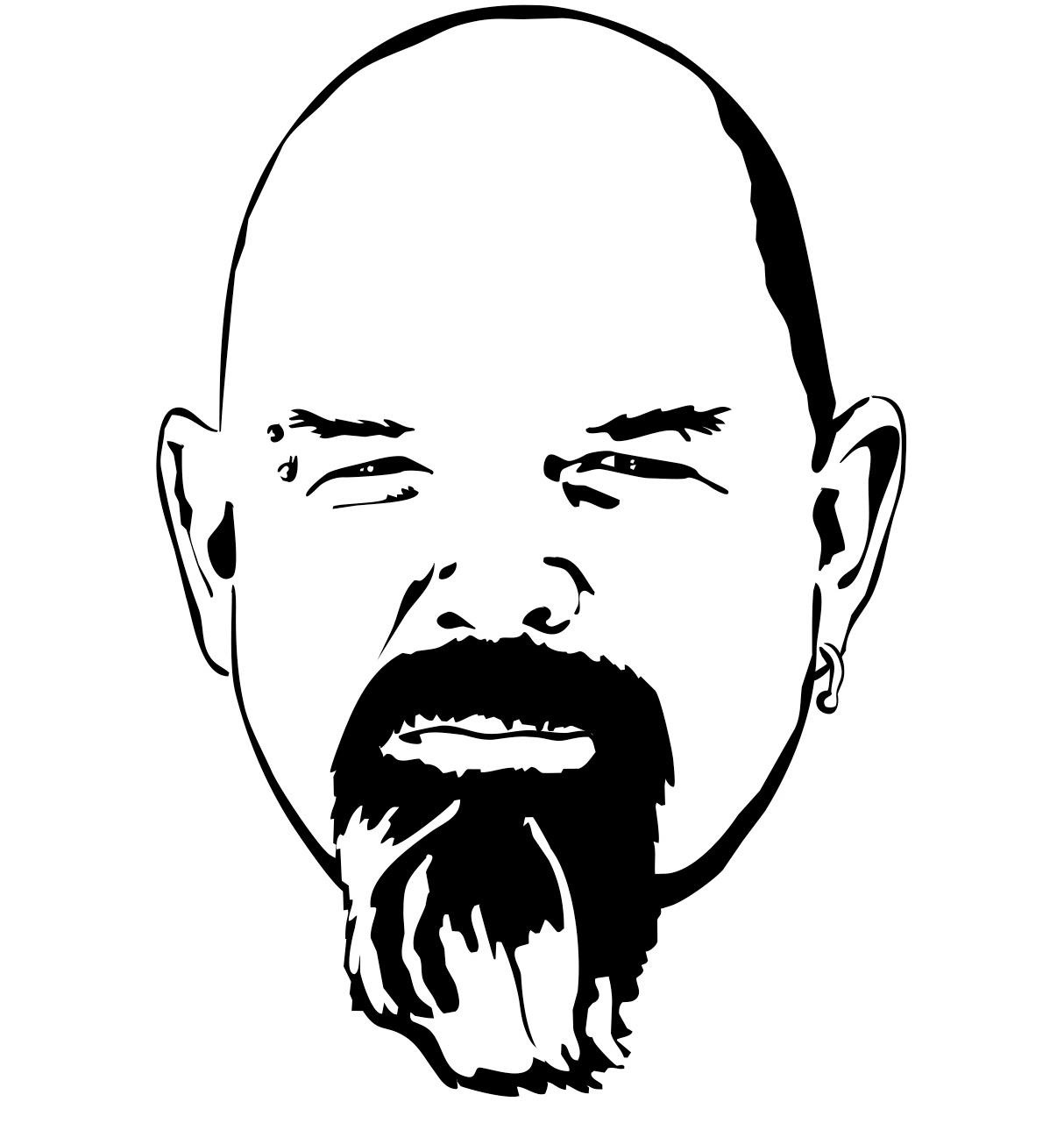
Not only are you bringing guests into events but you’re also bringing speakers. A lot of these people are friends of yours. A lot of these people you know personally. We’ve all been to events where you get somebody on stage and you thought because of who they are, what they’ve written, you’ve seen them online, you’re expecting them to be an amazing speaker and they turn out to be a dud. They’re great for insomniacs. How do you go about making sure that the people that you’re bringing in are the people that are going to be impactful? Is it because they’re friends of yours, you know them and you’ve seen them on stage before? Are there people that you bring in that you’ve never had them speaking at an event or you’ve heard of them or you know them through other circles?
There’s only been one person that is not a friend of mine. I had Cameron Herold, Mark Victor Hansen, Sharon Lechter, Jason Campbell, Tucker Max and Joel Weldon at the last one. I’ve had Eli Moselle, Jim Quigg, Jay Abraham. These are all friends of mine. I will interview them prior to the event and tell them what I need them to be focusing on to answer. Also, no one presents without a Q&A interaction. That’s another thing. I’ve had a couple of my friends who are great on stage and I’ve gone, “This is a group that’s going to ask you questions. If you want to do a presentation before the Q&A, tell them at the beginning.” If someone goes, “Jay, how do you do this?” Be prepared to answer it. I’ve had people, friends of mine that are great presenters, great speakers that have gone, “I don’t like that. I don’t want to do that. I don’t want to do Q&A.”
Mine are interactional. You’ve got to be able to communicate. You’ve got to feel free. I want these experts and my attendees to have a conversation for an hour to get the problem out of the way. Not only have I interviewed the attendees, I’m also interviewing the teachers that are there. They always say the experience comes three seconds after you needed it. I never worked high on liability, so I would never bring someone in that I’ve never worked with before to be my main wow. There was a little spot that I had that was a little 30-minute spot on media. I got this person to come in because they’d been recommended to me by someone, and this person was dull. I’m going to be quite vague here because I don’t want to upset her.
What I wanted was to get her media firm in. Her media firm had transformed this dullard into a person of interest. I dragged as much as I could to add to the conversation to make it interesting and beneficial to the crowd and the community. They enjoyed it. I killed the conversation, thanked them for coming, didn’t put them up for Q&A because quite simply you could see they weren’t there and then finish them out. When they left, I said to my team, “We got it wrong there.” We believe the hype. I trusted this person. I’m going to contact my friend to go, “You gave me a dead fish.” I’m going to do all of that. What do I do with my crowd? One of my team said, “They don’t know. They enjoyed it. You ask good questions. You had a fireside chat. They weren’t presented, so there was no liability. You raised some good things that help them.” I went, “I still think they need to know.” One of my team said, “You don’t have to do that, Steve. They had a good time.” I went, “No, they need to know.”
When I went back up, I said, “That last one was a mistake. This is what happened. I give you my oath now, it will never happen again.” It never happened again. There’s only ever been one person that I’ve not been close to. There are a lot of people that bandy the word friend around. If you haven’t been to someone’s house and you haven’t shared each other’s food and drink, you haven’t picked each other up when you’re bloody shit-faced drunk, they’re not friends of yours. Everyone that ever comes to any one of my events is close, personal. My attendees can see that from the interaction that we have. They adopt that interaction when they’re communicating with it. It was like bringing a good close friend to a house party.
We control our environment. Share on XYou used a term that was brilliant. It struck me like a ton of bricks. It’s a house party. You’re sitting there going, “These are some of my friends. These are some of my acquaintances. I want to turn my acquaintances into my friends so we’re going to create the best house party we can. We’re going to make it all about them. We’re going to make sure that they leave here saying, ‘That was an incredible event. I’m so glad that I came.’” It’s a matter of putting the processes in place. You’re right. Most of us overthink these things.
Most of us overthink of the things like we have to have the perfect wine glasses. We have to have the China set out perfectly. What wines are we going to serve? In the end, what matters is the experience. What’s the experience that you can provide these people? I’m going to switch directions a little bit but I got one last question to go. You had this great quote on one of your webpages. It says, “Getting media is one thing. What you do with it is everything.” I think everything that we’ve talked about to this point is summed up with that quote. I want to let you talk about it.
There are far too many people now that know how to get the attention. You can get a post, you can boost the hell out of it and you can get a lot of attention, a lot of followers. Getting attention is not everything. Getting media is not everything. It’s the second step that makes it everything. There are a lot of people that will suddenly go out, that will suddenly get an article in their local post and they will have the article drop and sit back going like filter dreams. “It’s there.” They will come now and they will go suddenly like, “Get that bank account open up. I’m waiting to flip. Somebody starts going ding-ding. It doesn’t happen.” Getting media is not the 3rd, 4th, 5th. It’s the first step. In fact, I believe it’s not even the first step. It’s your toolkit.
The first step is how do you distribute the article you’ve got? Who do you tell about the article you’ve got? How do you leverage that article to another article? I did an article ages ago in my local gazette.
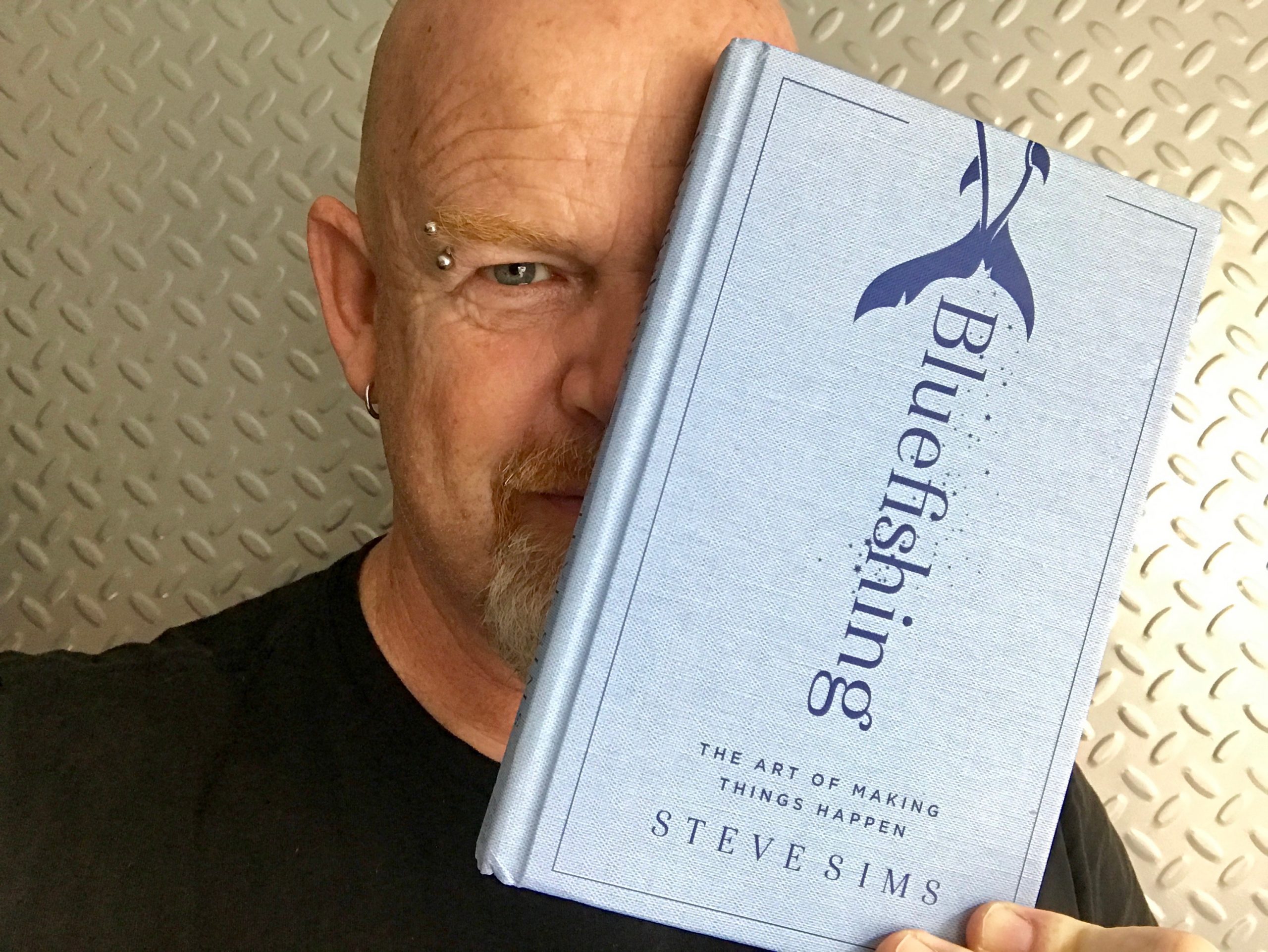
The paper was so thin you could use it as a toothpick but I had an article in it. What did I do with that article? I sent it to another magazine in my area, slightly more glossy. I went, “I did an article over here but I’ve got a different thing that we didn’t explore. If this is of interest to you, let me know. I’ve got some fresh stuff for you.” They went, “We’ll take it.” It was a little local rag, so they were happy. This was a magazine that looked nice that was a free magazine in a local hairdresser. I took that magazine and I took it to the county press. I forgot the gazette. I went, “I saw this magazine wrote an article on me, a couple of things that they thought I didn’t go over. If you want to do a bigger exposure on how this is helping people, I’m available.”
This is what happens. Nowadays, media is lazy. They don’t want to take the risk on exposing you. If someone else has done it, they go, “They must have done that due diligence. I’ll take it.” As you start, what you’re doing, is you are leapfrogging up and down the ladder. I took that article from the gazette, to the magazine, to the local press, to an AP-syndicated press and it finally got up in the Worth Magazine. I took the same article different kind of spin. Every 3rd or 4th article, you could go back to the original one and start again because to someone else’s, it’s fresh. The bottom thing is if you’re trying to get people to know who you are or what you stand for, first of all, you got to get your voice into the right sandpit. When you get media, you’ve then got to make sure that people pay attention to it. There’s a lot of work required once you get the article. Getting the article isn’t going to get your bank account fat. What you do with that article is what’s going to balloon it.
It’s also the fact that so many people want to say, “I need to get written up in Forbes, Inc. or Fortune Magazine.” They put all their eggs into that one basket and they realized why they get rejected over and over again. You’re right. If you start small, you build advocates and you tell that story to a small audience, a little larger audience, all of a sudden, the big magazines and the big newspapers start calling because you become a big person a little step at a time. I think we all need to realize that success does not come overnight, does not come easy and does not come without the heartaches and the hassles that go with it. We all have to start where you did with nine people at a speakeasy and building it out. I’m sure you could get 40 people. If you decide you were going to do another speakeasy that you didn’t even announce, you were going to do one, I’m sure you can get 40 people to come to that. That takes time, effort and consistency of product. That’s how you turn a small event into something with large impact.
Steve, I love this conversation. I got one last question. I asked you this before and I’m going to ask you this again. It’s the thing that I ask everybody as they walk out the door. When you leave a meeting or you get off the stage and you get in your car or on your bike for your matter and you drive away, what’s the one thing you want people to think about you when you’re not in the room?
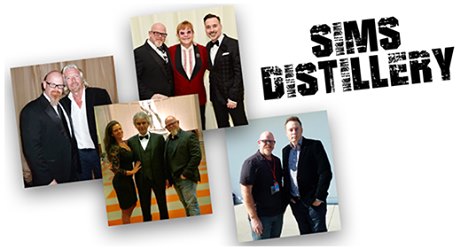
“He got me uncomfortable.” That’s what I want. I want people to meet me and get uncomfortable. Once you’ve got uncomfortable, you never go back to the original point of comfort. You extend what you’re capable of doing so you grow. It’s that point of being uncomfortable where all that growth sits and something can explode in you. I want to get people uncomfortable.
There are too many people in the world that are too comfortable doing what they’ve always done. There’s no room for growth if you’re not willing to be uncomfortable. Steve, you’ve been a gentleman. You’ve been a scholar. I loved having you on the show again. Thank you for your time and thanks for being such a great guest.
I appreciate you. Thanks for having me.
Important Links:
- Episode 216 – A Conversation with the REAL Wizard of Oz
- Steve Sims
- Sims Distillery
- Facebook – Steve Sims
- Instagram – Steve Sims
- Apple Podcasts – The Art of Making Things Happen (Bluefishing) Steve Sims
- Amazon – Bluefishing: The Art of Making Things Happen
About Steve Sims
 Do you know anyone that’s worked with Sir Elton John or Elon Musk, sent people down to see the wreck of the Titanic on the sea bed or closed museums in Florence for a private dinner party and then had Andre Bocelli serenade them while they eat their pasta – you do now
Do you know anyone that’s worked with Sir Elton John or Elon Musk, sent people down to see the wreck of the Titanic on the sea bed or closed museums in Florence for a private dinner party and then had Andre Bocelli serenade them while they eat their pasta – you do nowLove the show? Subscribe, rate, review, and share!

